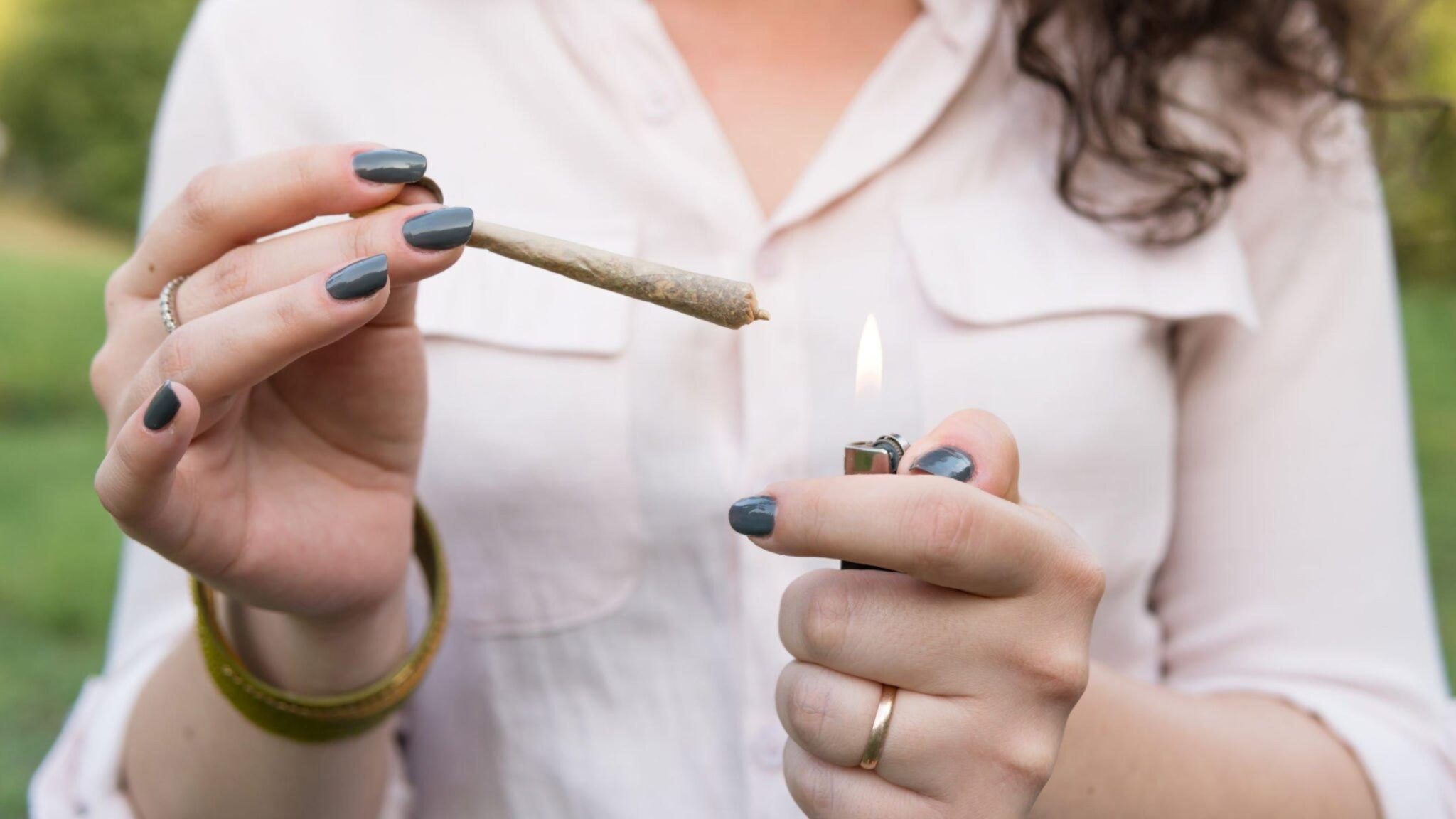If you're a cannabis enthusiast looking for a joint that meets your needs, you'll probably consider the strain and THC concentration.
This will often be printed on the item.
But have you ever thought about how you calculate the THC content of a pre-roll? Let’s find out more in this article!
What Percentage Of THC Is In A Typical Joint?
The typical joint may have between 40 and 200mg of THC, but can occasionally reach higher.
Pre-rolls are frequently used as you don't need to do the arithmetic because experts will do it for you.
But if you enjoy rolling your joints, we can show you how to figure out how much THC is in each one.
How to Calculate the THC Content of a Joint?
Let's say you just purchased some Delta-8 flowers and are ready to light up.
However, you're unsure of how to calculate an approximation of THC for each one. To start, let's get some equipment:
- Calculator
- Pen
- Paper
- Kitchen scale
Let's begin once you have everything.
Weigh the rolling paper and filter jointly to determine the overall amount of THC in a joint. Then Zero it out.
After that, roll your joint. When you're done, place it on the scale and weigh it in milligrams.
Find the hemp flower's certificate of analysis to determine the product's THC content.
It's time to conduct some math on the joint's weight and THC content.
To calculate the total milligrams of THC in a joint follow the below formula:
Formula: (Weight of joint (milligrams) x THC percentage = total milligrams of THC in joint)
Example: 650mg x 0.19= 123.5mg of THC
Factors Affecting the Total Amount of THC Absorbed
The amount of THC in your joints can be roughly calculated using the formula above. But keep in mind that it's not precise.
The following are some more factors that might have an impact on how much THC you consume:
- Smoke wasted from harsh wind
- Smoking technique
- The number of compounds that the body will absorb which is known as bioavailability.
The first two factors are comparatively simple.
How about bioavailability, though?
Let's dissect it.
Only a portion of the substances present in vitamins, prescription drugs, food, and beverages will be absorbed by the body.
The leftover quantity won't be absorbed in the GI(Gastrointestinal) tract and will travel with other waste materials.
The method is the same when using cannabis for smoking.
There is no way to predict how much THC each person will absorb because each body is unique and just a percentage of the THC will be absorbed in the body.
A study published in the Journal of Chemistry & Biodiversity found that the bioavailability of cannabis in test individuals who smoked it ranged from 2% to 56%.
This information implies that the overall THC consumption is far lower than one may anticipate.
Therefore, even though a joint has 155mg of THC, you probably won't be consuming that much.
Techniques for Changing the Intake of THC
There are ways to get the most THC out of each session, even if bioavailability is a major topic of discussion.
Below are some helpful hints and other things to think about before your next session.
The Size of the Joint
How much THC you take in will depend on how big the joint is. Less THC will be present in a smaller joint. In contrast, the larger the joint, the harder it is to avoid air resistance.
Therefore, try smoking inside if you can. This will put you in a safe atmosphere and lessen the damage.
THC percentage
Look at the THC content and the strain while selecting hemp flowers or joints.
You can decide which bloom is ideal for you by examining both.
Try cannabis with less THC if you want to feel more relaxed; if you want to feel more euphoric, try cannabis with more THC.
Puff Technique
The amount of THC smoked will depend on your smoking technique. And if your method is ineffective, you'll miss out on a lot of cannabinoids.
Remember to wait for the joint to light before inhaling the next time you light up. Inhale deeply and observe the results.
How much THC is lost by inhaling smoke?
You won't be able to determine how much THC was lost through smoke inhalation without testing. The best method to do this is to draw some blood and have it tested.
Once you have the figure, all you have to do is deduct the milligrams of THC that were found in your blood from the initial amount.
Conclusion
It's critical to understand the THC content of your products, particularly joints, for the optimal experience. Knowing the approximate THC content will help you calculate how much cannabis you need, whether you roll your own or purchase pre-rolls.
 Since 2021, Kif offers a streamlined platform to get a medical marijuana card online. We have served more than 45K patients across the United States. Sign Up Now to get the right to use medical cannabis for your health condition without any delay.
Since 2021, Kif offers a streamlined platform to get a medical marijuana card online. We have served more than 45K patients across the United States. Sign Up Now to get the right to use medical cannabis for your health condition without any delay.
























